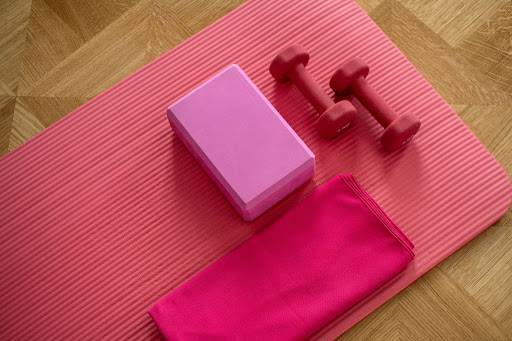

Nine Stress Relief Tips for Back to School
Whether you’re going back to school/work or taking care of littles who are, the back-to-school season can come with an increase of items on your to-do list...
Whether you’re going back to school/work or taking care of littles who are, the back-to-school season can come with an increase of items on your to-do list (and often anxiety).
Below you’ll find nine tips for relieving stress and helping you to maintain your cool this season.

1. Create a routine
By establishing a daily routine, you can set aside time to take care of important and necessary tasks, and can help you make more space in your life for relaxation and fun. A daily routine combats feelings of burnout and can help you avoid procrastination (which can only add to your feelings of stress).
Habits take time to create, so begin building your daily routine slowly. Start with something small and manageable like a solid morning routine or a daily walk in the evening.

2. Reduce your caffeine intake
Those early mornings may have you reaching for an extra cup (or three) of coffee, looking to the caffeine to boost your energy and productivity. However, studies have shown that high doses of caffeine can increase anxiety. ¹
The Mayo Clinic recommends having no more than four cups of coffee, but it’s important for you to monitor your bodily reactions to your caffeine habit. Are you feeling jittery? Having trouble sleeping? Cutting back a bit on your caffeine intake can help.
Try drinking decaf coffee or tea, and make sure you’re drinking plenty of water.

3. Exercise
There are so many reasons why exercising regularly can help you manage stress and anxiety. It releases endorphins, improves your sleep, and regulates your cardiovascular, digestive, and immune systems.
We designed our new Release, Restore, Recover series specifically to help your body release tension and restore balance in your nervous system. Sign up for your 14 day free trial to give it a try!

4. Set boundaries
Most of us struggle with setting boundaries, and the start of a new school year––with all of the new or renewed activities–– can make it even harder. However, creating boundaries in how you use your time and energy can greatly help to reduce stress and burnout.
Setting boundaries allows you to maintain a healthy work-life relationship. Learn to assess your needs and practice saying no to unnecessary or draining commitments.

5. Get outside
According to the Environmental Protection Agency (EPA), the average American spends 93% of their life indoors. No wonder feelings of anxiety and depression have increased in recent years.²
Getting outside does wonders for your mood. Engaging in outdoor activities, like running, hiking, biking or camping, can improve blood circulation and release “happy” chemicals like serotonin and endorphins that contribute to an overall sense of well-being. Even a few minutes of sun exposure can increase the brain’s release of these “happy” chemicals.³
Spending just five minutes outside everyday will impact your mental health for the better. So go on a walk, eat lunch outside, or take a weekend getaway to a campsite in the woods.

6. Spend time with family and friends
A Cigna study from the American Journal of Health Promotion indicated that excessive social media use increases feelings of loneliness and isolation, which can increase stress during difficult times.⁴
Spending quality time with people who love and care about you can provide a lot of comfort when your life seems out of control. Having positive relationships with your family and friends encourages feelings of connectedness and positive coping mechanisms, as well as adaptability and resilience.
Grab coffee with your friend, invite your family to a nice sit-down dinner, or take your kids for a walk and watch your stress melt away.

7. Laugh
Laughter really is the best medicine. Laughter reduces the level of stress hormones like cortisol, adrenaline, and dopamine, while increasing the level of endorphins.
When we laugh at something, especially during times of stress, it provides us with physical and emotional relief. It signals to your body that you are safe and allows you to shift your perspective to a more positive one.

8. Breathe
When you experience stress, your body, whether you realize it or not, responds. This stress response (or “Fight or flight”) involves taking more shallow breaths which can prolong feelings of anxiety.
Slow, deep breaths tell your brain to calm down, which in turn helps your body relax by lowering your blood pressure and heart rate.
Next time you find yourself stressed, breathe in slowly through your nose, allowing your chest and lower belly to rise as you fill your lungs. Then breathe out slowly through your mouth.

9. Prayer
Cast your anxieties on the Lord. Meditation and prayer can do wonders for someone coping with stress.
Dr. Roberta Lee, a world-renowned integrative physician, wrote in her book The SuperStress Solution that people who turn to prayer and religion when faced with difficult situations are “better able to cope with stress, they heal faster from illness, and they experience increased benefits to their health and well-being.”
It also helps you recognize the aspects of your life that are (or aren’t) within your control and helps you plan accordingly.
What are your favorite ways to combat stress during this time of the year? Head over to Instagram and Facebook and let us know!



